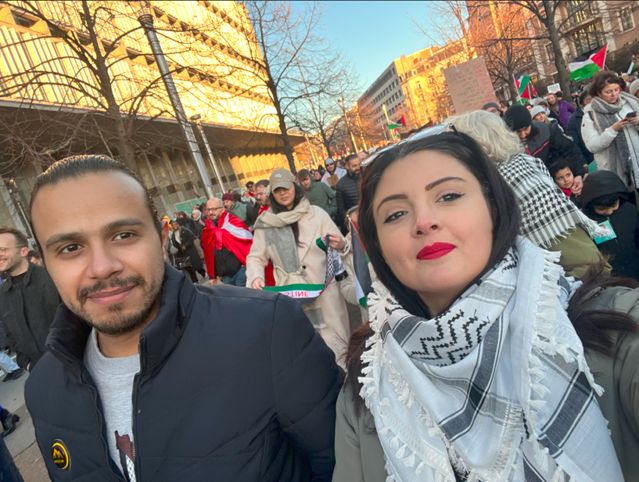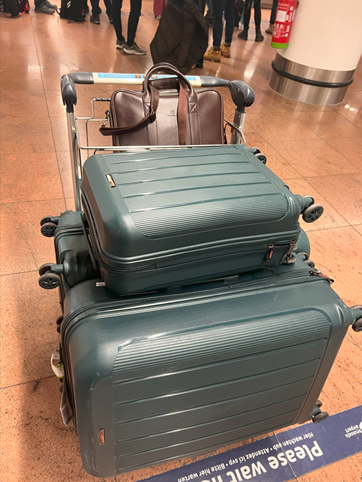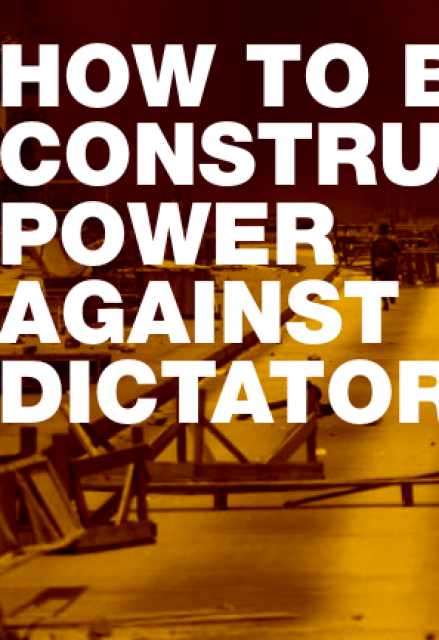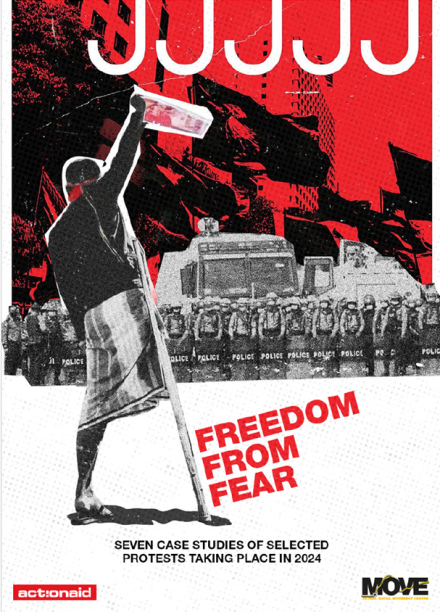This text speaks to the tensions of cultural and personal identity in exile and the connection of the private to the public. It presents testimonies and lived experiences of people who were forced or chose to leave their countries, and the challenges they face in adapting to new societies.
In this inaugural blog of our Activism in Exile series, we delve into personal narratives that embody the complexities of displacement and the lifelong search for identity. Sarah, in her voluntary exile from Lebanon, reflects on the delicate balance between individual and collective survival, explores the fragility of identity and develops her worldview. As for Mostafa, who was forced into exile from Egypt, he shares with us the personal tragedy of mourning his mother from afar, contemplating the transformations of struggle and the relentless pursuit of justice, even in the face of exile.
This personal revelation marks the beginning of our blog series, "Activism in Exile: Challenges, Opportunities, Lived Experiences", a partnership between REACT (Research-in-Action) and HuMENA for Human Rights and Civic Engagement. (...) our contributors will delve into the complex intersection of activism, identity, and the profound experiences of exile—a journey marked by an ongoing search for meaning and belonging.
- Sarah and Mostafa
“The road has not ended, so I can say, metaphorically, that the journey has begun. The end of the road may lead me to the beginning of another. Thus, the duality of exit and entry remains open to the unknown...and in external exile, I realized how close I am to the opposite far away, how much there was here”, writes Mahmoud Darwish, the exiled Palestinian refugee poet.
In his wonderful text, “Gradual Exile”, Mahmoud Darwish summarizes the questions about exile, its relationship to return, the constant openness to possibilities and the unknown, the relationship between internal and external exile, the meaning of homeland, country and return, and the question of the personal and the public.
Exile is the imposed and desired, what we want but what we fear, what we seek but what we cannot adapt to, the wide space of freedom that is narrowed by the narrowness of language, expression, and vision... and it is like our idea of the country, vast and unknown, and we are still at the beginning of the journey, and in the process of looking for meaning. Is the violence with which our country faced us when we demanded rights and freedom a political and historical condition for exile, or is exile an opportunity for us to redefine the dissident identity and the fractured self for considerations related to private experience, as it is the form of fluid and flexible identities that we become when we deviate from the pattern?
Exile was not always an option, nor was it always forced. It is the personal that turns into a public political, and the public that becomes personal due to its excessive attachment to the dimensions of individual identity. It is the incomplete circle between metaphor and reality, between the country and its opposite, between immigration and return, between the constant question of who am I and who are they?
Our stories are nothing but a tangible reflection of these questions, and we wrote the following from the temporary land of the margins as an attempt that will not necessarily lead to answers.

VOLUNTARY EXILE, SARAH
I was not forced to leave the country. There are no barrels falling on homes in Lebanon as in Syria, nor is there a tyrant who throws all his opponents into prisons as in Egypt... not yet, at least. But in Lebanon there is violent bombing on the villages of the South and Bekaa, and a war looming on the horizon. There are also armed traditional parties that control the state institutions, authority, and political and social life. All of this is accompanied by a severe economic crisis, the absence of social safety networks, security chaos, and restrictions on public and individual freedoms. Like others who realized that our ability to change, we who chose to deviate from the norm and convention, and split from sects and parties, is modest, I chose individual survival. I chose to make a new life for myself, in a new country, far away and cold.
“I will erase my knees with an eraser. I will eat them so that I will not kneel for an era, a movement, or a stage,” says Muhammad al-Maghout in his book, “I Will Betray My Homeland,” which succeeded in being a poignant, tragic testimony to a bleak chapter in his nation’s history. Our voluntary departure from Lebanon, as exiles, is nothing but akin to eating our own knees so we don’t kneel-and an intense expression of the bitterness of defeats, the anger of the powerless toward a country plagued by political factions, militias, institutions, elites, police, and media, and the loss of hope in its future.
Was this a selfish choice? I do not know, maybe. But the alternatives were almost non-existent and there were no solutions on the country's horizon.But neither the journey has begun nor the road has ended. Exile was the beginning of a path that carries many deep existential questions, moral dilemmas, and identity crises.
Here I am, no longer an individual who represents herself. My identity has narrowed, and I have become a woman with colored skin, Mediterranean features, an accent, and a specific religious and cultural background, a woman whose dishes’ seasonings and spices smell different. Here in exile, I belong to the “they” group, whether I choose to or not, and I represent a specific cultural group and identity. Members of this identity/group must gain the consent of the municipality, the Immigration Department, the Ministry of Foreign Affairs, the community, and the state. They also have to follow language and integration lessons, and they have to justify themselves every time an extremist group attacks Brussels or Paris.
On the other hand, the perspective broadened, and the simplistic identity evolved into a multifaceted one. Here I proudly wear the Palestinian keffiyeh and cheer for Gaza. I advocate for the rights of Turks, Afghans and Africans, and oppose the marginalization of Moroccans in Molenbeek, rejecting the stigmatization that portrays them as antiquated and extremist.
The perception of homeland here in exile evolves in tandem with its opposite. Everything is interpreted in its opposite and seen through a lens of contrast, and the pursuit of permanence becomes a skill we acquire to compensate for the temporary. Here in exile, the Identity is fragile, the vision is fragile, the language is fragile, all integral components of what Darwish termed “the literature of human loss”—a quest to comprehend the tumultuous human experience in exile, marked with fear of loving things that are not ours, and owning things that are not ours, and our tendency to glorify a place in which we can live, but we are afraid to be buried in it. Home is never here. Homeland is there, where siblings await, windows remain open, and memories abound.

THERE IS NO CHOICE BUT EXILE, MOSTAFA
On the afternoon of Saturday, April 3, 2021, I received that life-altering call. My mother had passed away in Egypt. The caller offered words of solace, urging me to remain steadfast and pray for her soul, while cautioning against any thoughts of returning to Egypt, knowing all too well the regime’s penchant for imprisoning dissenters upon arrival.
At that moment, the reality of my exile hit me with full force. It was exile in its truest form—I was robbed of the opportunity to lay my mother to rest. They stripped away my right to exist in my homeland, denying me the chance to bid a final farewell at her graveside.
More than three years prior to that fateful call, I had made a hasty exit from Egypt, prompting my placement on travel watchlists and punishment for my peaceful activism—before my conscience could be put on trial for speaking truth to power, and my work as a lawyer and human rights defender could be condemned. The Egyptian regime's stance toward dissenters is crystal clear: imprisonment or exile. And in both scenarios, the abuse doesn’t cease; it extends to targeting families back home, inflicting further pain and breeding animosity.
For over seven years, I've been without a homeland. I moved country after country, city after city, house after house seeking Egypt at every turn, yet unable to return to it. I scoured for traces of my homeland in a Turkish-dubbed Egyptian film dubbed in Istanbul, in a meal in an Egyptian restaurant on the outskirts of Paris, in a gathering of exiled human rights defenders in Beirut, and within the melodies of an Egyptian singer’s concert in Brussels. I sought home in everything, yet it eluded me.
Writer Sophia McLennan in her book The Exile Dialectic: Nation, Time, Place and Language defines exile as a series of cultural identity tensions. Indeed, the experience of exile forces us to confront aspects of ourselves that we once regarded as dormant and held in utmost certainty. Who am I, truly? Should I cling to my identity/ies or should I assimilate into the new society for acceptance? Will this new society embrace me? How can I adapt to my surroundings? Which language should I learn? Can I learn it at all? “You are not from the castle, you are not from the village, you are nothing. But unfortunately, you are something, you are a stranger, you are an extra thing that stumbles everywhere and causes trouble.” This is how Franz Kafka depicted the reaction of the villagers, even those who stood in solidarity, to the arrival of the land surveyor, the hero of his novel The Castle.
But it is a new exile, not the end, and then once again I must develop habits and mechanisms for adaptation and confrontation. However, the dream that once touched me remained constant: a free, democratic, and just homeland. This exile, despite its scope, did not succeed in silencing thousands of Egyptians. Instead, we made it a bridge extending towards tomorrow. And I am one of them. Tyrants tried to silence my voice once, but my voice only grew louder.




